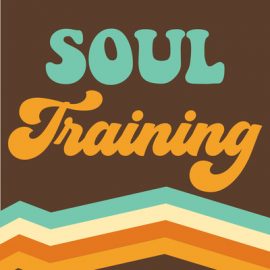I am so thankful for Ron & Don Williams. The work that they are doing is a blessing to so many. I know that my family benefited from the time spent this weekend thinking biblically and deeply about suffering and loss. I am confident that the others who attended the seminar feel the same way.
As we experience grief and loss, we often hurt so deeply that we are beyond consolation—we are often beyond reasoned with. Not only do we ask “Why?” but we may also ask “How is this fair? How could any- thing good ever come from this?” I’ve asked those questions (and many more similar to them).
To use Ron & Don’s phrase: While we will never “get over” significant losses, what is it that may help us to “get beyond” them? Is it even possible, well after the fact, to find good? The following are things that I have been taught, and that I have found to be true in my own life:
Suffering should drive the child of God to pray. In 2 Kings 20:1, Hezekiah was told, “[Y]ou shall die; you shall not recover.” What was his reaction? “Hezekiah turned his face to the wall and prayed to the
Lord” (2 Kings 20:2). What did God do? He said to the king, “I have heard your prayer; I have seen your tears. Behold, I will heal you” (2 Kings 20:5). Remember: God loves, listens, and understands! Cast your burdens on Him (1 Peter5:7)!
Suffering should drive the child of God to study. The Psalmist said, “It is good for me that I was afflicted, that I might learn your statutes” (Psalm 119:71). And again, “Before I was afflicted I went astray, but now I keep your word” (Psalm 119:67). The answers to our questions are found in the revealed will of God, the Holy Bible (John 6:68).
Suffering should open the eyes of the child of God to his/her own weaknesses. It was the “thorn in the flesh” that helped Paul to realize his dependence upon the power of God and that “when I am weak, then I am strong” (2 Corinthians 12:10).
Suffering should lead the child of God to a more confident hope. “More than that, we rejoice in our sufferings, knowing that suffering produces endurance, and endurance produces character, and character produces hope, and hope does not put us to shame, because God’s love has been poured into our hearts through the Holy Spirit who has been given to us” (Romans 5:3-5; cf. James 1:2-4). Our hope is in the God that rules…the God that wins. D.A. Carson stated the ideal when he said in his book, How Long, O Lord? that “Christians will take refuge from their questions about suffering not in bitterness, self-pity, resentment against God, or trite clichés and religious cant, but in endurance, perseverance, and faith in the God who has suffered, who has fought with evil and triumphed, and whose power and goodness ensure that faith resting in him is never finally disappointed” (Baker, Grand Rapids, 1990; 246).






